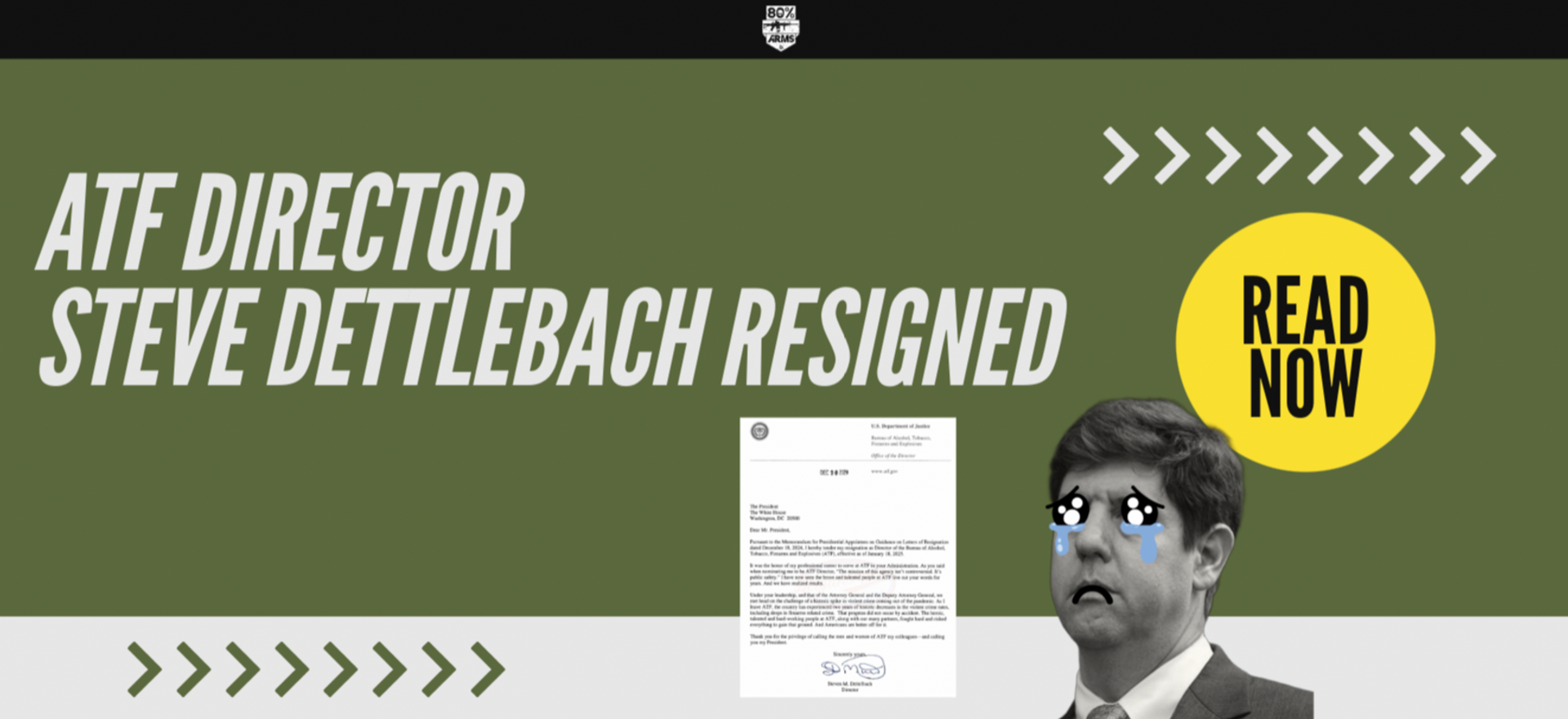Steven Dettelbach Resigns: A Controversial Chapter at the ATF Ends
Steven Dettelbach, President Biden’s appointed director of the Bureau of Alcohol, Tobacco, Firearms and Explosives (ATF), has officially resigned, ending one of the most contentious and blunderous periods in the agency’s history. His resignation, effective January 18, 2025, comes just days before Donald Trump assumes office, and while it’s being presented as a standard part of the presidential transition, it’s impossible to overlook the political implications. As only the second Senate confirmed ATF director in history, Dettelbach’s tenure drew intense criticism for implementing President Biden’s gun control agenda through controversial rules on pistol braces, home gun building, and the redefinition of what qualifies as a firearm. These measures bypassed Congress and ignited a flood of legal challenges, some of which have already resulted in courts blocking their enforcement.
Under Dettelbach’s 30 month tenure,the ATF revoked more Federal Firearms Licenses (FFLs) than at any other point in the past two decades, primarily as part of Biden’s “Zero-Tolerance” policy. Many of these license revocations stemmed from small administrative errors rather than serious violations, such as failing to account for firearms, verify and document buyer eligibility, maintain records for firearms tracing, or report multiple handgun sales, with many issues arising from simple paperwork mistakes like errors on Form 4473 or missing an ATF trace request contact attempt. The “frame and receiver” rule, which sought to redefine unfinished firearm components as complete firearms, directly impacted companies like ours that manufacture 80% lower receivers. This rule disrupted an industry built on law-abiding individuals exercising their right to build firearms for personal use. It also sparked widespread opposition and numerous lawsuits challenging its legality. With a final court decision expected in the spring, the rule’s future remains uncertain, but the courts have already started pushing back on several ATF overreaches.
Looking Ahead: What the Future Holds for the ATF and Gun Rights
For many Second Amendment advocates, Dettelbach’s resignation represents a step in the right direction after years of what they see as the ATF exceeding its authority. His departure spares President-elect Trump the chance to make good on his promise to fire Dettelbach, but it also provides Trump with the opportunity to nominate a new ATF director who could steer the agency in a different direction. The ATF’s attempts to implement sweeping regulatory changes without legislative approval have drawn sharp criticism, with many gun owners and businesses questioning whether the agency has become more focused on advancing a political agenda than enforcing laws as written.
In his resignation letter, Dettelbach claimed that the ATF made progress in reducing violent crime during his time in office. However, gun-rights advocates have pushed back on these assertions, pointing instead to a tenure that targeted law-abiding gun owners and businesses while overstepping the boundaries of constitutional authority. Dettelbach’s resignation is a win for Second Amendment supporters, but it’s just the first step. The ATF’s history of overreach and politicization has led many to call for its abolition. Dettelbach’s departure highlights the need to dismantle an agency that has repeatedly proven untrustworthy and unnecessary.
This sentiment is echoed by lawmakers such as Reps. Lauren Boebert (R-Colo.) and Eric Burlison (R-Mo.), who recently introduced the Abolish the ATF Act to eliminate the agency entirely. The bill aims to protect Americans’ Second Amendment rights and shield law-abiding gun owners from what they describe as the ATF’s “relentless bureaucratic overreach.” Burlison criticized the ATF as emblematic of a government agency that infringes on constitutional liberties without accountability, while Boebert, co-chair of the Congressional Second Amendment Caucus, argued that the agency has consistently worked against the rights of firearm owners. Their efforts signal growing momentum among gun-rights advocates to address the systemic issues within the ATF and, ultimately, to question its very existence.



 Back to List
Back to List